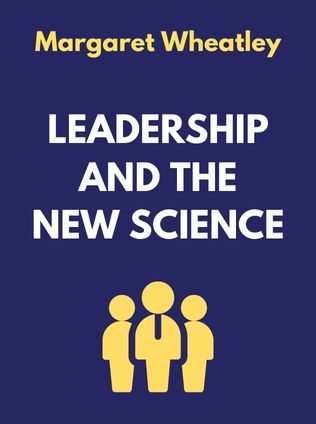
Leadership and the New Science
Discovering Order in a Chaotic World
By Margaret Wheatley
Published 09/2006
About the Author
Margaret J. Wheatley, Ed.D., is a renowned management professor, consultant, and author who has dedicated her career to exploring how to restore hope and sanity to organizations. With a deep understanding of the complexities of modern organizational life, Wheatley brings a unique perspective that combines scientific principles with practical management strategies. She has been actively involved in teaching and consulting since 1973, providing valuable insights that have influenced leaders and organizations worldwide.
Main Idea
In her book, Leadership and the New Science: Discovering Order in a Chaotic World, Margaret J. Wheatley explores how new scientific discoveries, particularly in the fields of biology, chaos theory, and quantum physics, can revolutionize our understanding of leadership and organizational management. Wheatley argues that these new sciences reveal a world where chaos is natural and order emerges from it, encouraging us to embrace change and interconnectedness to build more resilient and adaptive organizations.
Table of Contents
- Introduction: Searching for a Simpler Way to Lead Organizations
- Discovering an Orderly World
- Newtonian Organizations in a Quantum Age
- Space is Not Empty: Invisible Fields That Shape Behavior
- The Participative Nature of the Universe
- Change, Stability, and Renewal: The Paradoxes of Self-Organizing Systems
- The Creative Energy of the Universe - Information
- The New Scientific Management
- The Real World
- How Imposed Control Can Threaten Survival
- Epilogue: Journeying to a New World
Introduction: Searching for a Simpler Way to Lead Organizations
Wheatley begins by challenging the traditional mechanistic models of organizational leadership. She introduces the concept of self-organizing systems, drawing on Nobel Prize-winning chemist Ilya Prigogine’s work that demonstrates how systems can reorganize themselves into greater order when confronted with changes. Wheatley asserts that organizations, like living systems, have the capacity to adapt and grow in response to disorder, transforming chaos into a catalyst for innovation and resilience.
"Disorder becomes a critical player, an ally that can provoke a system to self-organize into new forms of being." - Margaret J. Wheatley
Discovering an Orderly World
In this section, Wheatley reflects on her observations of natural processes, using the metaphor of a stream to illustrate the adaptability and fluidity necessary for organizational success. She emphasizes the importance of focusing on intent and vision rather than rigid structures, advocating for a dynamic approach that allows organizations to evolve organically.
Wheatley notes, "Structures emerge, but only as temporary solutions that facilitate, rather than interfere." By embracing the natural flow of change, organizations can find multiple paths to achieve their goals, much like a stream finds various ways to reach the ocean.
Sign up for FREE and get access to 1,400+ books summaries.
You May Also Like
The Subtle Art of Not Giving a F*ck
A Counterintuitive Approach to Living a Good Life
By Mark MansonRich Dad Poor Dad
What the Rich Teach Their Kids About Money - That the Poor and Middle Class Do Not!
By Robert T. KiyosakiHow To Win Friends and Influence People
The All-Time Classic Manual Of People Skills
By Dale Carnegie



















